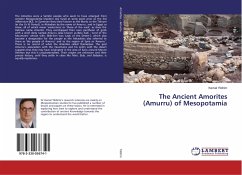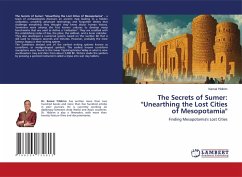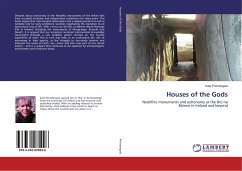The Amorites were a Semitic people who seem to have emerged from western Mesopotamia (modern day Syria) at some point prior to the 3rd millennium BCE. In Sumerian they were known as the Martu or the Tidnum (in the Ur III Period), in Akkadian by the name of Amurru, and in Egypt as Amar, all of which mean 'westerners' or 'those of the west', as does the Hebrew name Amorite. They worshipped their own pantheon of gods with a chief deity named Amurru (also known as Belu Sadi - 'Lord of the Mountains' whose wife, Belit-Seri was 'Lady of the Desert'), which also became a designation for the people as the Akkadians also referred to them as 'the people of Amurru' and to the region of Syria as 'Amurru'. There is no record of what the Amorites called themselves. The god Amurru's association with the mountains and his wife's with the desert suggests that they may have originated in the area of Syria around Mount Hermon but this is unsubstantiated. Their origins are unknown and their precise history, until they settle in cities like Mari, Ebla, and Babylon, is equally mysterious.
Bitte wählen Sie Ihr Anliegen aus.
Rechnungen
Retourenschein anfordern
Bestellstatus
Storno








